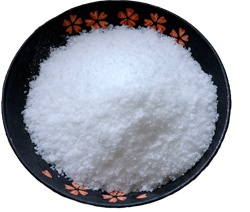We all like to think we are doing our best to live a healthy lifestyle. Yet it may be surprising to learn that it can be the little things – even seemingly small harmless habits that can have the biggest impact on your health over time. Let’s take a look at eight to watch out for…
1. Sitting down all day

Sitting down all day may seem fairly innocent. Yet studies show that ‘sitting down’ could be a silent killer and just as deadly as smoking.
Many of us are spending up to nine hours a day sat down in an office, without even thinking about it. Extensive sitting can raise the risk of serious illnesses and even premature death according to health reports.
Problems occur when extensive physical inactivity switches off the metabolism and this may make the body more susceptible to health problems such as high blood pressure, diabetes, obesity, heart disease and even cancer.
Solution: Choose a standing desk or opt to alternate between standing and sitting during the day.
2. Eating ‘wholegrains’
 Wholegrain bread or pasta might be marketed as the ‘healthy’ option but they are anything but. That’s because all grains are inflammatory within the body.
Wholegrain bread or pasta might be marketed as the ‘healthy’ option but they are anything but. That’s because all grains are inflammatory within the body.
Inflammation is one of the major causes of disease and with grains, this happens because it contains gluten which damages the small intestine.
Gluten is the protein in wheat that makes the dough elastic. People who have celiac disease are aware of how gluten can affect their digestive health and acknowledge they need to avoid all grains for this reason.
Solution: A healthier and gluten-free alternative to wheat or grains is to use Buckwheat flour or Coconut flour for baking bread, pizza, pancakes, pastries instead.
3. Not getting enough Vitamin D3
 Vitamin D3 is an essential vitamin for building strong and healthy bones. A deficiency can cause rickets, a disease in which the bone tissue doesn’t properly mineralise and this leads to soft bones and skeletal deformities.
Vitamin D3 is an essential vitamin for building strong and healthy bones. A deficiency can cause rickets, a disease in which the bone tissue doesn’t properly mineralise and this leads to soft bones and skeletal deformities.
Some of the symptoms associated with Vitamin D3 deficiency include Osteoporosis and Osteopenia, cancer, heart disease, high blood pressure, obesity, metabolic syndrome and diabetes, autoimmune disease and multiple sclerosis.
Solution: Exposing the bare skin to sunlight is one way to get more Vitamin D3, another is to take a Vitamin D3 supplement – ensuring it contains Vitamin K2 as this improves calcium absorption, directing calcium to prevent calcium deposits within the arteries, joints and organs within the body.
4. Not getting enough Magnesium

Magnesium is a critical mineral we all need more of. Magnesium supports blood pressure levels and hypertension. It can help with assimilating calcium into the bone, improving bone formation and even lowering the risk of osteoporosis.
Magnesium is vital for maintaining muscles, including heart health and transmitting electrical signals in the body. Magnesium also plays an essential role in the functioning of several hundred biochemical responses.
Solution: The best way to get more Magnesium into the body is use it topically by spraying onto the skin for maximum cellular absorption, rather than chewing a tablet.
5. Not getting enough sleep

Sleep is an essential part of good health and wellbeing. Lack of sleep can put you more at risk of heart disease, heart failure, high blood pressure, stroke and diabetes.
People who sleep less than six hours a night are more likely to suffer with depression or anxiety, and one of the most common sleep disorders – insomnia, has the strongest link to depression.
Lack of sleep can be ageing for skin collagen causing you to look older. It can also make you more forgetful as the memory becomes less sharp.
A 2009 study by American and French researchers found that brain events called “sharp wave ripples” are responsible for consolidating memory and they transfer learned information from the hippocampus to the neocortex of the brain – the area where long-term memories are stored. The sharp wave ripples occurred mostly during the deepest periods of sleep.
Solution: Aim to get a good night’s sleep of at least 7-8 hours for best results. If you struggle with insomnia, try this Sleepwell™ formula containing Niacin, along with a proprietary blend of 5-HTP, Melatonin, Valerian Root, Passiflora, Hops and MSM.
6. Taking on too much work
 Work-related stress occurs when the demands of work become so overbearing that it spills over into your personal life.
Work-related stress occurs when the demands of work become so overbearing that it spills over into your personal life.
It’s estimated that around 12 million working days are lost each year because of work-related stress and it contributes to conditions such as anxiety or depression.
Work related stress can have a direct impact on your mental and emotional self. This can lead to feelings of irritability, mood swings, low energy levels, along with aches, pains, headaches and even weight gain.
Solution: Stop working at the end of the day – don’t carry it home with you. Relax in the evening by taking time for yourself, 5-10 minutes meditation in the morning or evening can also help to relax the mind and give you freedom from anxiety. A B-vitamin supplement with L-Theanine may help to improve focus and encourage relaxation.
7. Watching too much TV
 Many people enjoy watching TV of an evening to relax. Yet television watching is a sedentary activity that could raise the risk of health problems.
Many people enjoy watching TV of an evening to relax. Yet television watching is a sedentary activity that could raise the risk of health problems.
In an analysis published in the Journal of the American Medical Association, researchers combined data from eight studies and found that for every additional two hours people spend glued to the television each day, their risk of developing Type 2 diabetes increases by 20% and the risk of heart disease increases by 15%.
Every 3 additional hours the participants in the study spent watching TV, this increased their risk of dying jumped 13$ on average from any cause during the respective studies.
Solution: Do an activity you love to relax instead. Walking, yoga, running, any kind of physical activity that encourages you to move is beneficial.
8. Skipping Flossing

Flossing is recommended by your dentist for best oral health. Bits of food can get stuck in your teeth otherwise, by removing sticky plaque and bacteria. Plaque can cause cavities to form, irritation to the gums and gum disease if left uncontrolled.
Poor oral health can also have a direct role in causing systemic diseases. A healthy mouth can potentially help to prevent more serious diseases from forming.
Brushing simply isn’t enough. Dental flossing is the best way to remove bacteria and plaque that bristles can’t reach to.
Solution: Try interdental brushes if you struggle with getting dental floss between your teeth. Otherwise try Coconut Oil pulling as this Ayurvedic method binds to the biofilm and ‘pulls’ it away so it can be spat out.
Good health happens when you build upon good habits that benefit your both and mind on a daily basis. Were you aware of any of the above? Which method are you most surprised at? We’d love to hear your thoughts and what you use to enhance your overall health and wellbeing.





